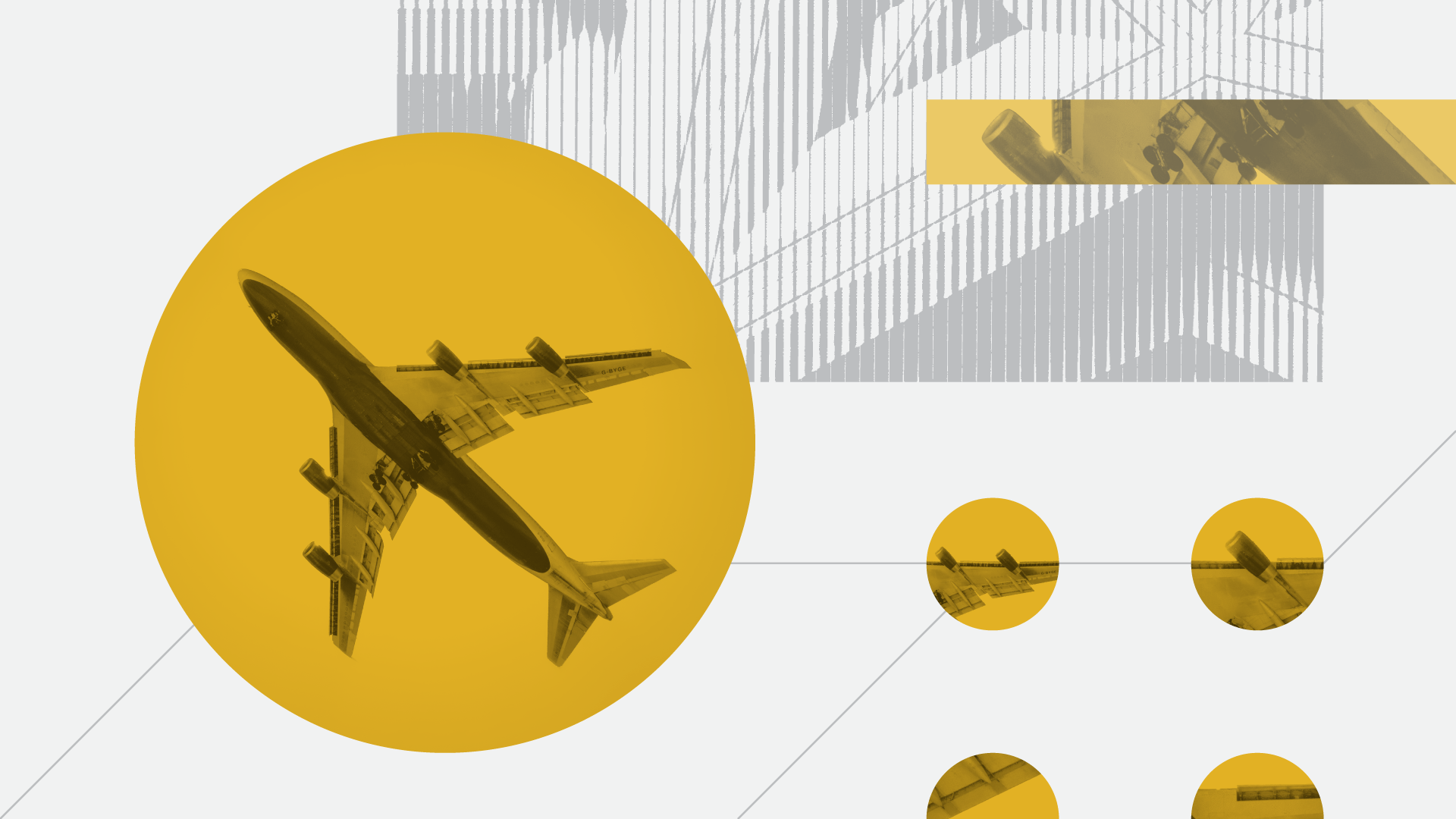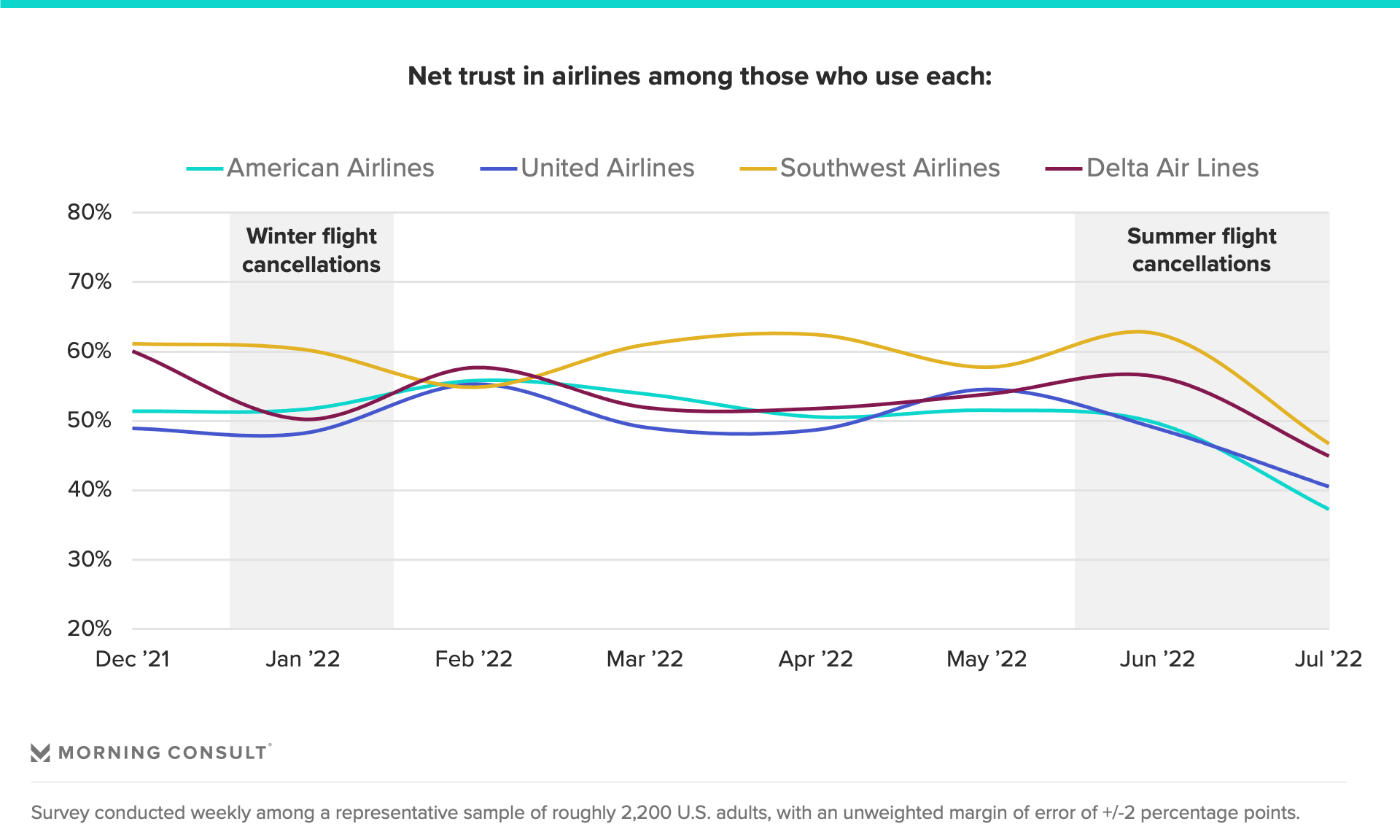Summer Flight Delays, Cancellations Have Shaken Trust in the Airline Industry

The summer travel season has ramped up quickly and left many airlines unprepared for a surge in vacationers. The resulting delays and cancellations have negatively impacted trust in the industry to an even greater extent than similar events over the winter holidays, as travelers feel airlines should have been more prepared this time around.
When it comes to air travel, there are few circumstances more frustrating than a canceled flight. More than 2,600 flights were canceled over Memorial Day weekend this year, kicking off a month of disruptions that ended in 1,400-plus cancellations over the recent Fourth of July holiday, so it’s no surprise that travelers are feeling fed up with airlines this summer.
And while the short-term anger may wane when a traveler arrives at their vacation destination, it can translate to long-term challenges for brands.
One of those lingering challenges is a loss in trust. New research shows that only 1 in 4 Americans planning to travel in the next three months trust airlines “a lot,” down 4 percentage points since January. The lack of trust is even more pronounced among frequent leisure travelers, with just 20% saying they fully trust airlines.
Travelers’ patience with airline delays and cancellations has run out
The spate of delays and cancellations is nothing new for the airline industry. Carriers experienced significant disruptions during the 2021 winter holidays but were able to retain consumer trust throughout that period, even though the number of flights canceled was actually higher than the number of cancellations experienced over the recent summer holidays.
The difference this time? Travelers feel delays and disruptions could — and should — have been avoided. So while they had some level of understanding over the winter holidays that a surge in COVID-19 cases caused unexpected disruptions in the form of staff on sick leave, they perceive the current staffing shortages and related operational issues to be challenges that airlines should have predicted as travel demand returned.
Trust in all airlines is impacted, no matter how well they performed
Net trust in the primary U.S. carriers — American Airlines, Delta Air Lines, Southwest Airlines and United Airlines — among users of each brand is lower now than it was in the wake of the winter holidays, having hit a clear inflection point in early summer when the delays and cancellations began to pile up. The downward trend experienced by all four brands concurrently is compelling, as some airlines experienced greater service disruption than others.
In the month of June, for example, Southwest cancellations accounted for just over 1% of scheduled flights — lower than numbers experienced by the other major carriers, which were around 3% to 5%, and, moreover, lower than the average share experienced in a typical month industrywide. Yet while Southwest retains a higher level of trust than its competitors, it still faltered alongside them, with net trust falling 11 points between May and July, compared with 9 points for Delta and 14 for both American and United.
This drop in trust demonstrates that one airline’s problem is often every airline’s problem. Particularly when delays and cancellations are heavily covered in the media, it can have a negative impact on all brands — even those with above-average performance.
Clear, timely communication can help airlines bolster consumer trust
Given ongoing staffing challenges and an expectation that disruptions will continue for the near future, airlines must get ahead of consumer sentiment.
Clear communication about scheduling delays and disruptions, or the lack thereof, will help to control the narrative and differentiate when an airline is performing especially well. And on the individual customer level, brands must continue to communicate early and often, particularly when a traveler’s plans are negatively impacted.
Lindsey Roeschke is an analyst whose work focuses on behavior and expectations of consumers in the travel & hospitality and food & beverage categories, particularly through a generational and cultural lens. Prior to joining Morning Consult, she served as a director of consumer and culture analysis at Gartner. In addition to her research and advisory background, Lindsey has more than a decade of experience in the advertising world. She has lived and worked in seven cities across four continents.
